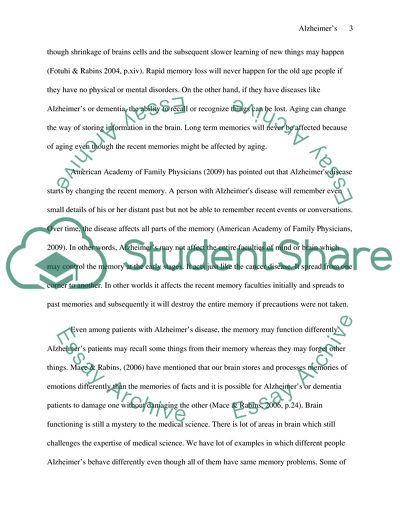Memory Loss - Alzheimer's Disease Term Paper Example | Topics and Well Written Essays - 1000 words. https://studentshare.org/medical-science/1738802-memory-loss-and-azheimers-disease
Memory Loss - Alzheimer'S Disease Term Paper Example | Topics and Well Written Essays - 1000 Words. https://studentshare.org/medical-science/1738802-memory-loss-and-azheimers-disease.


